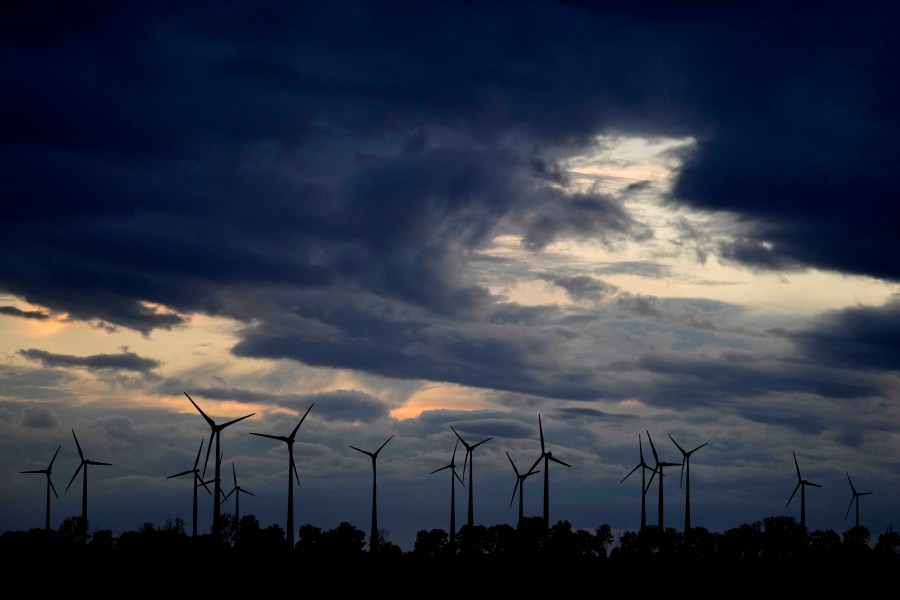Politics
Europe’s Climate Leadership Should Not Be a U.S. Model

Since the Paris climate agreement was signed in 2015, the European Union has emerged as a leading advocate for climate change initiatives, diving deeply into the legal and regulatory measures necessary to meet the United Nations’ global emissions targets.
Europe aims to become the world’s first carbon-free continent by 2050, with plans to reduce the collective emissions of its 27 member nations by 57 percent from 1990 levels by 2030. Meanwhile, the United States also strives for a net-zero emissions economy by 2050, targeting a 50 to 52 percent reduction in net greenhouse gas emissions by 2030, using 2005 as a baseline.
In a bid to align the private sector with these ambitious climate objectives, Europe’s financial regulators have introduced new legislation such as the Corporate Sustainability Reporting Directive and the Sustainable Finance Disclosure Regulation. These rules impose mandatory climate and environmental reporting on companies and financial institutions, ensuring that investment capital is directed toward “sustainable” endeavors.
As noted by the U.N.-endorsed advocacy organization, Principles for Responsible Investment, the EU is at the forefront of sustainable financial policy.
On the other hand, the Biden administration is playing catch-up in this arena.
The environmental, social, and governance (ESG) investing movement has woven climate policy into America’s financial landscape, spurring numerous net-zero alliances on Wall Street. Recently, this movement has taken on a more stringent and regulatory tone, with the government instating guidelines that classify nearly every economic sector by its carbon emissions footprint.
Employing a comprehensive governmental strategy, the Biden administration has intensified federal agency efforts against the fossil fuels sector over the past three years, including engagements by financial regulators such as the Securities and Exchange Commission.
In March 2024, the SEC implemented climate disclosure rules mandating that most publicly traded U.S. companies reveal all climate-related risks threatening their business models, along with reporting their greenhouse gas emissions. This regulatory climate check pressures both issuers and investors, facilitating the clean energy transition by limiting the financial and market resources available to fossil fuel producers. Similar to Europe, restricting funding for oil, gas, and coal producers is a strategic method to reduce domestic fossil fuel supplies and cut national emissions.
However, the shift toward decarbonization is predicated on a risky premise. There’s insufficient evidence to support the idea that economic growth can be successfully separated from fossil fuels or carbon output, nor is it clear whether the current politically guided transition to clean energy can be achieved with existing technology. As Europe’s recent experiences illustrate, an increasing dependency on renewable energy sources like wind and solar has led to power grid instability and rising electricity costs.
Currently, Europe faces some of the highest residential electricity rates globally. Additionally, by prohibiting hydraulic fracturing and phasing out reliable coal power plants, the region has highlighted that failing to secure a stable energy supply from fossil fuels—through either local resource development or dependable foreign supply chains—exposes countries to volatile global oil and gas prices and geopolitical risks, compromising domestic industries and amplifying national security concerns.
Higher fossil fuel prices invariably lead to increased consumer inflation, as hydrocarbons are integral to the production and transportation of nearly all goods and services in advanced economies. Consequently, surging oil and gas prices decrease real income and living standards.
Germany is a stark illustration of the economic fallout associated with aggressive decarbonization efforts. The past decade of stringent climate policies and poor energy management by the German government has resulted in a decline in industrial activity and overall economic contraction for one of the world’s largest economies.
The surge in electricity and natural gas prices, particularly after Russia’s invasion of Ukraine in February 2022, has adversely affected the competitiveness of Germany’s manufacturing sector, leading to factory job losses and rising corporate bankruptcies.
Despite these challenges, Germany remains obstinate, aiming to close all remaining coal and nuclear power plants by the end of the decade.
Efforts to decarbonize other financial markets could lead to similar unintended consequences.
Carbon-based regulations, including the SEC’s climate disclosure mandates, may render capital markets increasingly inhospitable to traditional energy firms. Despite the prevailing narrative about a smooth transition to clean energy, there is no substantive data to demonstrate that reducing greenhouse gas emissions results in better financial outcomes for individual companies or enhances returns for investors.
Rather than mitigating risks in the financial landscape, these new rules could exacerbate volatility by hastening the decline of fossil fuel production, undermining economic fundamentals, limiting investment choices, and further jeopardizing personal wealth and retirement savings. Instead of merely redirecting investment from carbon-emitting companies, these climate regulations risk driving capital away from established financial markets entirely.
It is high time that government officials justify their climate policies and regulations with concrete evidence instead of gambling on a clean energy transition while hoping for technological advancement. U.S. lawmakers and regulators should consider pausing their initiatives, allowing Europe to illustrate what a low-carbon future entails. Judging by Europe’s progress thus far, the path of decarbonization appears to lead downward rather than forward.
